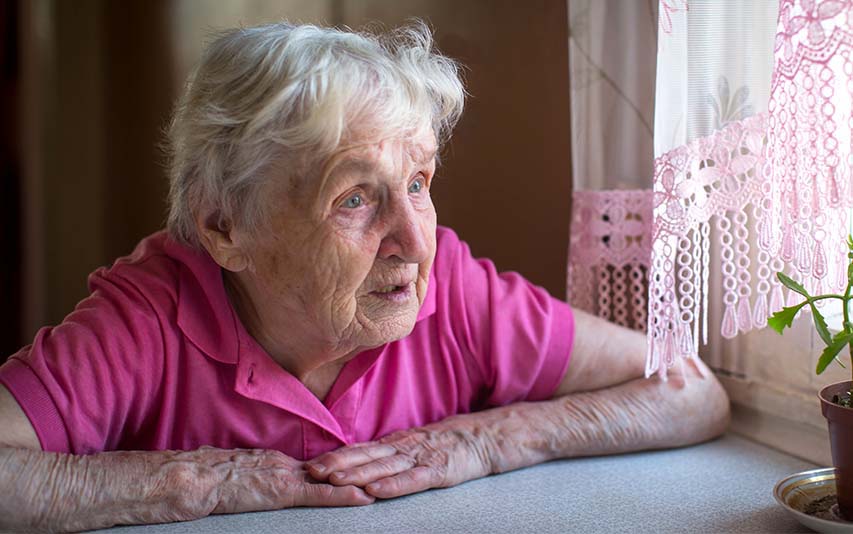Dementia cases across Northern Ireland set to double by 2040 due to ageing population
Dementia is a condition that affects mostly the elderly and is progressive. It can have devastating effects on the individual and the family and friends who are in support.
According to the Alzeihmers Society NI, there are approximately 22,700 people actually living with dementia and by 2040 that figure is expected to increase to 43,000 (based on NISRA statistics).
This increase in dementia sufferers in NI is projected to be the biggest increase compared to other areas iof England, Wales and Scotland in the UK. The older population is expected to increase faster in Northern Ireland that in these regions.
So effectively it is a ticking time bomb and NI Assembly politicians need to be factoring the costs of dementia care into their social care budgets to manage this impending crisis in care.
As of June 2024, 13,900 patients are on the dementia register and there are 9000 living with dementia undiagnosed and the cost is around £860 million per year. This is a major slice of the NI health and social care budget.
The pathways to diagnosis need to be quicker and more effective in order for patients to avail of early treatment and support.
But this figure will reach £2.4 billion by 2040 – in the lifetime of many of us.

Interestingly, Council area statistics show up some glaring anomalies… Ards and North Down Borough Council area per 1000 persons revealed a prevalence of 9.9% suffering from dementia on the register while Newry Mourne and Down showed a lower 5.7%.
Yet… comparing local health trust areas, the South Eastern HSC Trust (which covers the Ards and North Down area) showed per 1000 persons 8.3% of people on the dementia register, and in the Southern HSC Trust, the percentage was lower on 5.3%
It seems the further south away from major urban centres such as Belfast, Newtownards and Bangor, the rate for those on the register drops down considerably.
There may be other factors for the differences such as better lifetstyle in quieter rural areas, but it does beg some serious questions about the resourcing of care and how dementia sufferers can be brought onto the pathway quicker so they can avail of care and treatments.
***
South Eastern HSC Trust Explains Its Dementia Pathway
Down News asked the South Eastern HSC Trust for information on the dementia pathway for their area with a number of focussed questions. A spokesperson replied giving answers to the questions below writes Jim Masson ©.
Who can refer a person for dementia dementia diagnosis and how is this done ?
All referrals to Psychiatry of Old Age for a memory assessment by a Consultant Psychiatrist are made by the person’s GP.
The Dementia Navigation Service will accept referrals from a person living with a Dementia or their family members.
Also, Community Mental Health Teams for Older People accept referrals from a range of sources including Psychiatric Outpatient Clinics, GP, and other service areas across the Trust.
What is involved in the actual diagnosis for dementia ?
There is no one test to determine if someone has Dementia.
Consultants diagnose Alzheimer’s disease and other types of Dementia based on:
- Medical history
- A physical examination
- Laboratory tests
- Brain imaging
- Characteristic changes in thinking
- Day-to-day function and behaviour associated with each type of dementia.
What are the options for treatment given the range of types of Dementia ?
Treatment of Dementia depends on its cause. In most progressive Dementias, including Alzheimer’s disease, there is no cure.
Medications are available which can temporarily slow the worsening of symptoms and improve quality of life for those living with Alzheimer’s, and their caregivers.
Access to an accurate diagnosis and evidence-based treatment is crucially important as some medications are only effective in the early stages of the disease.
What support is there for people living with a Dementia in the community and in care settings ?
Based on assessment of need, SET provides nursing and social care support to those living with Dementia either in their own home, Supported living, Residential or Nursing Care Homes.
Support and information may also be accessed via Dementia NI (www.dementiani.org Tel 02896931555) and the Alzheimers Society (nir@alzheimers.org.uk Tel: 02890664100)
What specialist staff are there within the Trust and where they are located:
The Mental Health Services for Older People consists of eight locality-based Consultant-led Psychiatry of Old Age Teams who work in parallel with integrated multidisciplinary Community Mental Health Teams for Older People (CMHTOP).
The CMHTOP is made up of Community Psychiatric Nurses, Mental Health Social Workers/Approved Social Workers, Mental Health Care Managers, Dementia Navigators and Community Support Workers.
The service is also supported by Clinical Psychologists, Cognitive Behavioural Psychotherapists and Specialist Occupational Therapists. Services are delivered across three sites: Lagan Valley Hospital, Downe Hospital and Ards Community Hospital.
Are there respite facilities for persons caring for a person living with a Dementia ?
There are currently no specific respite facilities for someone caring for a person living with Dementia. However, there is respite available within South Eastern Trust residential homes and other independent homes in the South Eastern Trust area, that can provide respite, depending on availability.
The South Eastern Trust offers a carer’s assessment to all carers which in turn identifies need and additional supports are provided.
What external agencies does the Trust works with:
The South Eastern Trust has a close working relationship with the Alzheimer’s Society and with Dementia NI (see above for further detail).
Can you provide any statistics for the number of persons being treated or under supervision for Dementia over the last number of years:
The South Eastern Trust is temporarily unable to provide this information due to the implementation of the new electronic patient record (encompass).

























